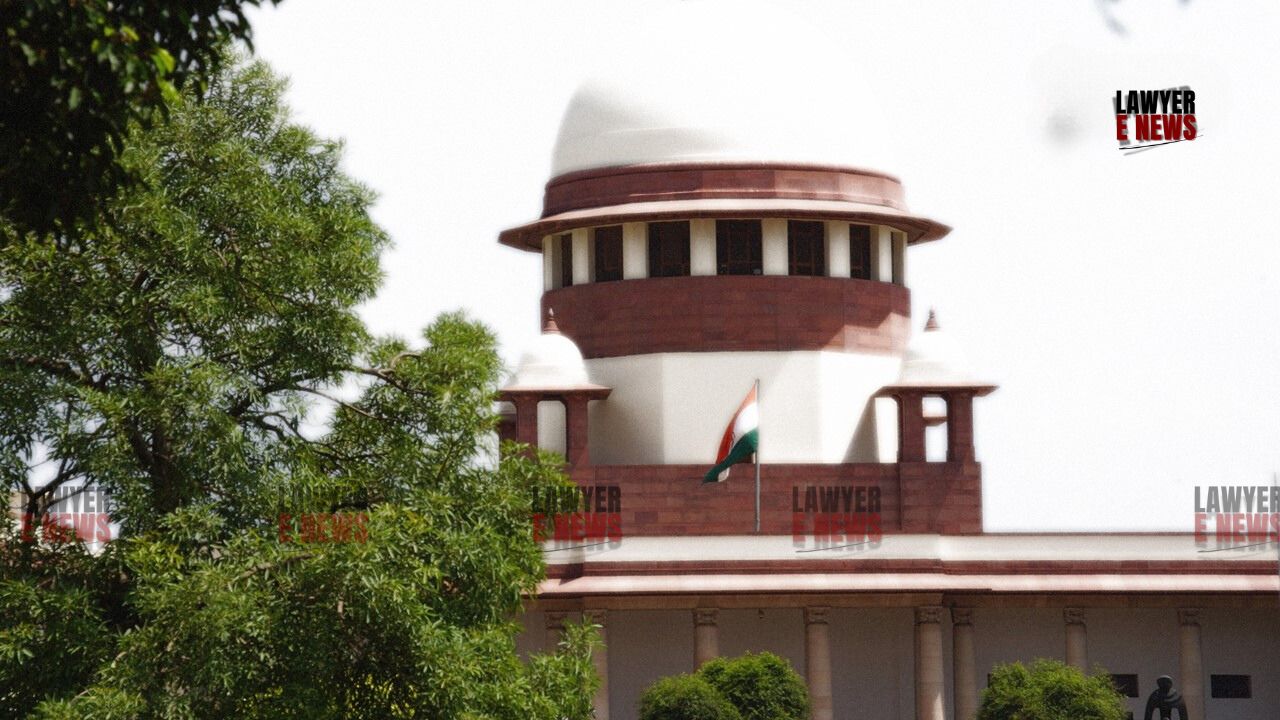-
by Admin
15 February 2026 5:35 AM



Supreme Court of India, in Kailashben Mahendrabhai Patel & Ors. v. State of Maharashtra & Anr., quashed an FIR and chargesheet under Sections 498A, 323, 504, 506 read with Section 34 of the Indian Penal Code (IPC). The Court held that the criminal proceedings constituted an abuse of process, as they stemmed from a civil property dispute between the parties. The ruling underscores the need to prevent the misuse of criminal law in cases rooted in civil disagreements.
The case originated from an FIR registered on March 25, 2013, by the complainant (Respondent No. 2), who alleged cruelty, dowry demands, and threats related to a share in family property. The complaint was filed against her stepmother-in-law, stepbrother-in-law, father-in-law, and a family associate (Munim). The complainant, married in 2002, accused the appellants of harassment, demands for dowry, and threats to deny her and her husband their share in ancestral property.
The High Court had dismissed the appellants’ petition to quash the FIR under Section 482 of the Code of Criminal Procedure (CrPC), holding that a prima facie case of cruelty under Section 498A IPC was made out. The appellants then approached the Supreme Court.
The primary issue before the Supreme Court was whether the allegations made in the FIR, which primarily pertained to family property disputes, justified the initiation of criminal proceedings under Sections 498A (cruelty), 323 (causing hurt), 504 (intentional insult), and 506 (criminal intimidation) of the IPC. The appellants contended that the FIR was an abuse of criminal process, driven by mala fide intentions arising from a contentious civil dispute over property.
Vagueness of Allegations: The Court found that the allegations in the FIR were vague, general, and lacking in specific details. The claims of dowry demands and threats were not supported by any material particulars or evidence. The Court noted, "The allegations are general and omnibus in nature, and the complainant failed to provide necessary details such as dates or specific incidents to substantiate the charges" (Para 10.1).
Civil Dispute Given Criminal Color: The Court highlighted that the dispute primarily concerned a contentious civil issue regarding ancestral property. The complainant and her husband had already initiated civil proceedings for a declaration of property rights, and the criminal complaint appeared to be an extension of this property dispute. The Court emphasized that "criminal proceedings should not be used as a tool to settle civil disputes" (Para 9.2).
Judicial Scrutiny of Domestic Violence Complaint: The Court took into account a prior judgment by the Judicial Magistrate First Class, Jalna, which had dismissed similar allegations made by the complainant under the Domestic Violence Act. The domestic violence complaint was based on the same set of facts, and the trial court had found the allegations to be unsubstantiated, further undermining the credibility of the FIR (Para 14).
Abuse of Legal Process: The Supreme Court reaffirmed its duty to prevent the abuse of criminal law when parties use it to further civil objectives. It quoted previous rulings, stating, "It would be an abuse of process of the court to allow criminal action that is rooted in a civil dispute" (Para 9.3). The Court warned against allowing frivolous and vexatious complaints to proceed in such circumstances.
On the Vague Nature of Allegations: "The allegations made in the FIR lack material particulars, and the complaint appears to be vague and obscure, making it impossible to ascertain specific incidents of cruelty or dowry demands" (Para 10.1).
On Abuse of Process: "The complaint is rooted in a civil dispute, with the FIR being used as a tool to advance the complainant's interests in the civil suit. Continuing the criminal trial would amount to a travesty of justice" (Para 9.2).
The Supreme Court allowed the appeal, quashing both the FIR and the chargesheet. The Court observed that none of the ingredients of the offenses under Sections 498A, 323, 504, 506 IPC were made out. It held that the continuation of criminal proceedings would result in an abuse of process and would serve no purpose other than to harass the appellants.
Date of Decision: September 25, 2024
Kailashben Mahendrabhai Patel & Ors. v. State of Maharashtra & Anr.
